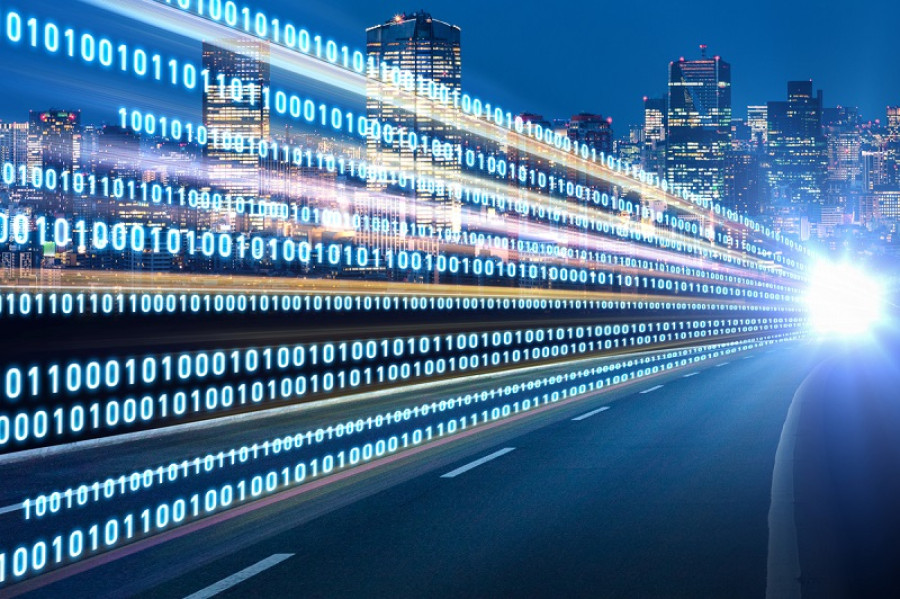Columns
Internet access is a human right
Affordability, accessibility and availability must be ensured to build a digital Nepal.
Narayan Prasad Ghimire
In the wake of the Covid-19 pandemic and the subsequent lockdown that forced people to stay indoors, various sectors ranging from schools and universities to banks took to the internet to continue operations. Non-governmental organisations, both the local and the international, resorted to Zoom meetings and discussions to conduct awareness programmes. Even government offices curtailed human resources, urging them to work from home utilising the world wide web. The internet, which has been ingrained in everyone's life, is applied widely in different offices and professions. Though forced upon many, internet use expanded alarmingly—thanks to Covid-19.
As internet permeates every person and profession, facilitating access to other fundamental human rights like freedom of expression and information, and freedom of assembly and association, it is relevant to ponder over it. As per the Nepal Telecommunications Authority, internet penetration in the country has reached 72.22 percent of the population. Irrespective of the cost, speed and quality, the expansion of the internet cannot be belittled. Some have argued that the time has come to recognise internet access as a human right in Nepal too. The debate on internet and human rights grew further, particularly after the United Nations declared internet access a human right in 2016.
Global trends
The UN declaration must have come after a growing number of countries declared the internet a human right and regional and global forums intensified debates and discussions about it. In 2001, Estonia became the first country to declare the internet a human right. France followed suit in 2009. This prompted the legislatures and judiciaries of other countries to gradually think of acknowledging internet access as a human right. Last year, the Indian state of Kerala declared internet access a human right. In 2010, Finland became the first country to ensure a broadband connection of 1 megabit per second to its citizens as a legal right.
Amid a surge in internet use following the lockdown, the approval of the government's Digital Nepal Framework which envisages making the greatest use of technology to achieve national objectives, and the adoption of the Sustainable Development Goals (specifically 16.10) which aims to ensure public access to information and protect fundamental freedoms, the advocacy of internet access as a human right has assumed further relevance.
The Digital Nepal Framework was prepared and launched by the government while the Sustainable Development Goals is a global advocacy policy the government adopted as a UN member country. Although the Digital Nepal Framework does not explicitly advocate for internet access as a human right, it aims at digital empowerment of the people besides improving the education, health and agriculture sectors. For digital empowerment, the internet is indispensable. Therefore, affordability, accessibility and availability of the internet must be ensured to build a digital Nepal.
Sustainable Development Goal 16 is devoted to establishing an inclusive and peaceful society, providing access to justice and creating accountable institutions. To this end, Target 16.10 urges states to 'Ensure public access to information and protect fundamental freedoms, in accordance with national legislation and international agreements’. Nepal has fully embraced the Sustainable Development Goals but there has not been adequate homework to address Target 16.10. Few discussions have been held on this target as compared to other goals and targets. The use of technology and the internet cannot be ignored to realise other goals and targets like gender equality, digital inclusion and quality education.
Freedom of expression and information is regarded as a foundational human right which enables other rights and freedoms. Internet access can be argued as being the foundation of foundational rights. Like human rights, the concept of the internet is universal and frontier-less. Access to the internet must not be limited to a particular area, class, gender, race or community, but to the entire human race. Any curtailment of internet access, filtering and blocking of contents, or shutting down of websites often draws criticism from a wide section. The very universal character of the internet is worth reiterating to highlight its status as a human right.
Voices of the downtrodden
Of late, the internet has brought to the fore the voices of the downtrodden in Nepal. Public officials have been held accountable, and public decisions corrected, following online criticism. Irrespective of some hate speech, the exercise of freedom of expression online has not only broken the traditional hierarchy but also created a digital civic space. Any news story or decision that ignores the marginalised, women and backward is quickly censured online, thus playing the role of a constant watchdog. In the wake of Covid-19, even calls for people's assembly and demonstration were made online and the assemblies held.
It is high time we saw the internet as a human right. As this debate intensifies, it will bring up myriad issues surrounding internet governance. The discussions should draw the attention of the legislature and the judiciary to the importance of the internet. It is also necessary to explore the potential of the internet to curb misuse, thereby boosting the internet ecosystem of which every person is a part.
***
What do you think?
Dear reader, we’d like to hear from you. We regularly publish letters to the editor on contemporary issues or direct responses to something the Post has recently published. Please send your letters to [email protected] with "Letter to the Editor" in the subject line. Please include your name, location, and a contact address so one of our editors can reach out to you.




 18.12°C Kathmandu
18.12°C Kathmandu















